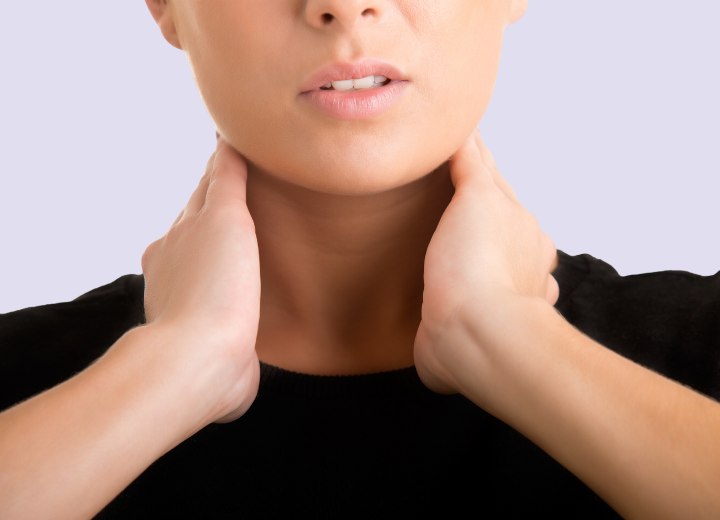Thyroid Disease and Japanese Hair Straightening

This was frustrating because I was really looking forward to the results. My sisters also have thyroid disease and have gotten curly perms multiple times without any problems, so I'm confused about why this would be different. Should I be concerned about getting this treatment, or is the salon being overly cautious?
Thyroid disease significantly impacts hair health in ways that many people don't fully realize. When your thyroid isn't functioning properly, it affects the entire hair growth cycle and the structural integrity of your hair strands. The thyroid hormones T3 and T4 play crucial roles in regulating cellular metabolism throughout your body, including the cells responsible for hair growth. When these hormone levels are disrupted, as they are in thyroid disease, your hair follicles can't function optimally.
This hormonal imbalance typically results in hair that becomes increasingly fragile, dry, and brittle over time. The hair shaft itself may develop structural weaknesses that aren't always visible to the naked eye but become apparent when the hair is subjected to chemical stress.
Japanese hair straightening (also known as thermal reconditioning or the Yuko system) is one of the most chemically intensive hair treatments available. The process involves breaking down the hair's natural protein bonds with strong alkaline solutions, then reforming those bonds in a straight configuration using high heat. This creates permanent results, but it also places enormous stress on the hair structure.
For someone with thyroid-compromised hair, this intensive chemical and thermal process can be catastrophic. Hair that's already weakened by hormonal imbalances may not be able to withstand the harsh chemicals used in the straightening process. The result could be severe damage ranging from extreme dryness and breakage to hair loss in the treated areas.
You mentioned that your sisters have successfully gotten perms despite having thyroid disease, which might make the salon's refusal seem inconsistent. However, there are crucial differences between traditional perming and Japanese straightening that explain this apparent contradiction.
Traditional permanent waves use milder chemical formulations and work by temporarily breaking and reforming fewer of the hair's protein bonds. The process is generally less aggressive and allows for more control over the chemical processing time. Modern perm solutions also come in various strengths, with gentler formulations specifically designed for fragile or already chemically treated hair.
In contrast, Japanese straightening requires much stronger chemicals to completely restructure the hair's natural curl pattern. The process also involves multiple steps with high-heat styling tools, creating additional stress. While perms can often be adjusted or corrected if something goes wrong, Japanese straightening is largely irreversible, meaning any damage that occurs is permanent.
©Hairfinder.com
See also:
Hair straightening
Can thyroid medicine affect hair color?
Medications with possible side effects that affect your hair